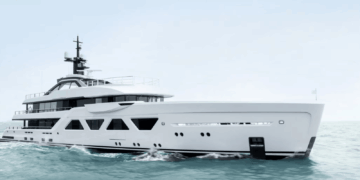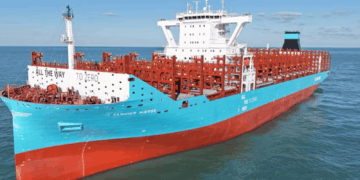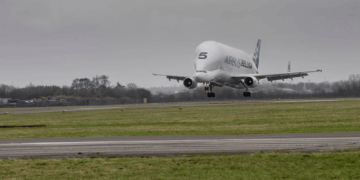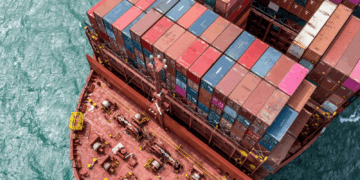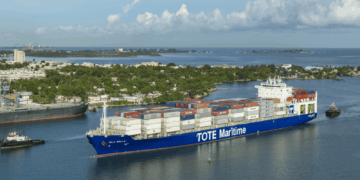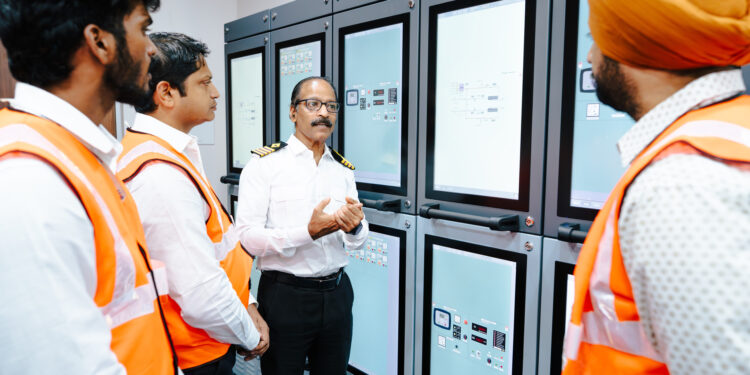As the global maritime industry accelerates its shift toward sustainable energy, Bernhard Schulte Shipmanagement (BSM) has launched its first methanol bunkering simulator at its Maritime Training Centre in Kochi, India. Developed in collaboration with maritime technology leader Wärtsilä, the simulator is designed to provide seafarers with essential, hands-on training for the safe and efficient use of methanol as a marine fuel. An ammonia bunkering module is set to be introduced in early 2026.
This initiative supports BSM’s broader strategy to enhance future-readiness and safety in anticipation of the widespread adoption of low and zero-carbon vessels.
“The maritime decarbonisation depends not just on new technologies but also on the people who operate them. Their capabilities are the foundation for safe and efficient vessel operations and a successful energy transition.”
Sebastian von Hardenberg, CEO of BSM.
The Kochi simulator marks the beginning of a global expansion. Two additional methanol bunkering simulators will be operational at BSM’s training centres in Poland and the Philippines by the end of 2025, strengthening the company’s ability to provide advanced alternative fuel training across key maritime regions.
Enhancements to the Kochi simulator will continue into 2026, with the integration of a dedicated ammonia training module. Together with existing LNG capabilities, this will complete BSM’s comprehensive training coverage of the three key fuels expected to drive the maritime energy transition.
BSM’s investment in this technology reflects its operational trajectory. With the company set to manage its first methanol-fuelled vessels this year, preparing crews for safe and compliant operations is essential. Industry projections show a clear upward trend in demand for training: while approximately 60 methanol-powered ships are in service globally today, that number is forecasted to exceed 350 by 2030.
“We must be prepared for a multi-fuel future. The new Wärtsilä simulator will allow our seafarers to train in a realistic, risk-free environment, preparing them for the complexities of methanol and soon ammonia bunkering operations with precision. It’s not just technology investment—it’s a commitment to competence and safety.”
Capt. Gurpreet Singh, Group General Manager, Training and Development at BSM.
“We are proud to support BSM in advancing maritime safety and sustainability. Our simulator provides a realistic and technically accurate environment to prepare crews for methanol operations—and the future of green shipping.”
Johan Ekvall, Director of Simulation and Training at Wärtsilä.
BSM is also focusing on upskilling its instructors, recognising that successful decarbonisation requires not only advanced technology but also expert training delivery. In April, BSM trainers participated in the world’s first Train-the-Trainer program on Alternative Fuels for Sustainable Shipping, organised by the IMO and the World Maritime University in Shanghai. This ensures that BSM’s in-house experts stay aligned with international standards and are equipped to deliver training that meets the latest regulatory and operational requirements under the IMO’s IGF Code.
In support of these efforts, BSM has introduced a suite of specialised training programs covering the safe use of methanol and ammonia as fuels. These include familiarisation courses, dedicated methanol firefighting training, and simulation-based bunkering scenarios to prepare crews for real-world operations.
The simulator itself, the Wärtsilä TechSim 5000, built on the TechSim 9 platform and certified by ClassNK, offers a highly detailed and immersive training environment. It replicates all key components of a methanol fuel system, including dual bunkering stations with both liquid and vapour return lines, real-time monitoring of storage and service tanks, and integrated low-pressure pump skids, nitrogen systems, and fuel valve trains. The system also features a fully interactive Automation System (IAS), 3D visualisations of bunkering stations and preparation rooms, and emergency shutdown (ESD) capabilities with robust alarm handling. Trainees also benefit from a suite of digital learning modules, covering scenarios such as bunkering operations, fault diagnosis, and emergency response.
This launch represents a significant step in BSM’s long-term training and sustainability strategy, ensuring that its crews and trainers are fully equipped to support the global transition to greener shipping.
If you’re looking to connect with companies leading the charge in alternative fuel technologies and maritime decarbonisation, contact us today to learn more about our MTB Marine events.

